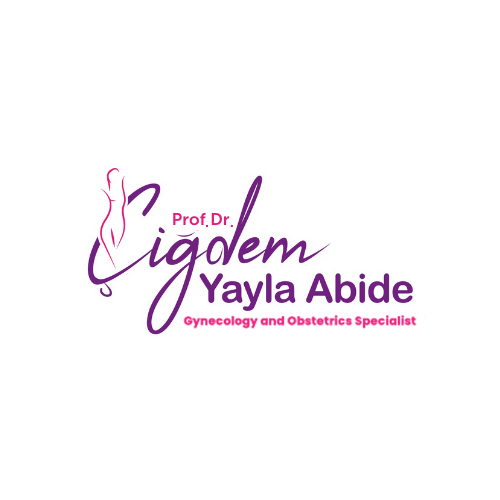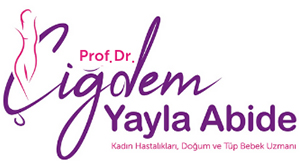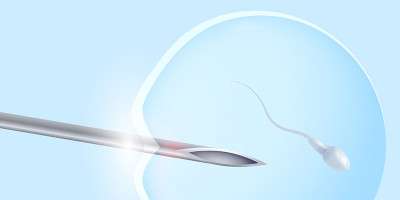What Are the Methods of IVF Treatment?
IVF treatment methods are as follows:
- Intracytoplasmic Sperm Injection (ICSI): This method involves injecting a single sperm directly into a mature egg using a micropipette. It is generally applied when male infertility factors are present. ICSI is also recommended for couples who have previously undergone IVF treatment without success.
- Embryo and Sperm Cryopreservation: This technique allows for the freezing of embryos or sperm for future use. In Turkey, storage is permitted for up to five years.
Until What Age Can IVF Treatment Be Applied?
One common question about IVF treatment in Istanbul is the age limit. Initially, on the third day of the woman’s menstrual cycle, blood tests are conducted to evaluate ovarian reserves. If deemed suitable, IVF treatment can be attempted up to the age of 45.
Who Can Undergo IVF Treatment?
IVF treatment is typically considered for couples under 35 who have been having unprotected and regular intercourse for at least one year. For women over 35, due to a decrease in ovarian reserves, the time frame is often shortened to six months of regular intercourse.
The following groups may be suitable candidates for IVF treatment in Istanbul:
- Women with irregular menstrual cycles
- Individuals with decreased ovarian reserve
- Those with a history of sexually transmitted infections
- Those who have experienced ovarian inflammation
- Women who have had ectopic pregnancies
- Individuals who have had fallopian tubes removed surgically
- Men with a history of testicular trauma
- Individuals with a family history of infertility
- Those who have had undescended testicle surgery
- People working in environments with radiation exposure
- Men with premature ejaculation issues
What Is the Success Rate of IVF Treatment?
The success rate for the first IVF attempt is around 60% for women under 35. However, this rate drops to approximately 20% for women in their 40s due to the decline in egg quality as age increases. Consequently, the likelihood of conceiving naturally decreases significantly after age 35.
Who Is Recommended for IVF Treatment?
IVF treatment is recommended for infertile couples with a low or non-existent chance of natural conception or those who may pass on a genetic disorder to their offspring.
What Is the Miscarriage Risk in IVF Treatment?
The likelihood of miscarriage for women who become pregnant through IVF treatment is approximately 20%. However, women who undergo IVF are generally more attentive to follow-up appointments than those who conceive naturally, which increases the chances of identifying potential issues early. Regular check-ups and careful monitoring can help reduce the risk of miscarriage.
How Many Times Can IVF Treatment Be Attempted?
According to specialists in reproductive medicine, IVF can be continued as long as there are sufficient eggs available and no issues with embryo development. Some patients achieve pregnancy as late as the sixth or seventh IVF attempt.
Which Infertile Couples Are Recommended for IVF?
IVF treatment is often suggested for the following couples:
- Couples who have had two unsuccessful intrauterine insemination (IUI) attempts
- Women over the age of 40 (directly recommended for IVF)
- Women with damage or blockage in both fallopian tubes, or who have no tubes (such as those who previously underwent tubal ligation or tube removal)
- Those with low ovarian reserve (in cases where ovulation is infrequent or absent)
- Women with endometrioma (chocolate cyst) or advanced endometriosis
- Men with reduced sperm production or function (such as azoospermia, where no sperm is present, or oligospermia, where sperm count is low)
- Couples with unexplained infertility (when no underlying cause is identified, typically after two IUI attempts)
In cases of genetic disorders, IVF with preimplantation genetic diagnosis (PGD) is also recommended. This technique involves screening embryos for genetic abnormalities before transferring them to the uterus, ensuring only healthy embryos are selected for implantation.
How Is the IVF Procedure Carried Out?
After an initial consultation with your physician, a comprehensive health history is taken, followed by a physical exam measuring height and weight, along with a gynecological examination. This includes assessments of the genital organs, especially the cervix, uterus lining (where the embryo will implant), and fallopian tubes. Cervical smear and culture tests are also taken. Early in the menstrual cycle, the ovaries are examined to assess egg count and quality, and a uterine ultrasound is conducted after the menstrual cycle ends. At the same time, a sperm sample is taken from the partner for analysis, and he may be referred to a urologist. Once these evaluations are complete, an IVF treatment plan is created. The treatment stages are as follows:
- Stimulating the Ovaries: A hormonal treatment (such as HMG, FSH) is administered to increase the quantity and quality of eggs. After about 8-10 days of treatment, when the eggs reach 18-20 mm in size, an hCG "trigger shot" is given. Medication type and dose are adjusted according to the patient’s age, weight, ovarian reserve, and any prior treatments.
- Egg Retrieval (OPU Procedure): Approximately 34-36 hours after the trigger shot, the patient is prepped for egg retrieval under sterile conditions and positioned on a lithotomy table. Through an IV, light sedation is administered by an anesthesiologist. A vaginal speculum is inserted, and the cervix is sterilized. The procedure uses a transvaginal ultrasound probe with an attached needle, guiding it through the vaginal-cervical junction to collect eggs. The patient feels no discomfort during the procedure.
- Sperm Collection: The male partner provides a sample through masturbation, which is analyzed in the lab. If sperm is not present, minor surgical procedures like TESE or TESA may be used to retrieve sperm.
- Fertilization: Eggs and sperm are prepared in a controlled culture environment, either by leaving them to fertilize naturally or by injecting the sperm directly into the egg via microinjection. The resulting embryos are placed in incubators that replicate the human body’s conditions, where they develop for 5-6 days.
- Embryo Transfer: The embryos are transferred into the uterus, generally between days 2-6 post-OPU, depending on their development stage. This is done with the aid of a catheter and ultrasound guidance. The transfer is painless, does not require anesthesia, and takes about 5-10 minutes.
- Pregnancy Test: Ten to twelve days after transfer, a blood test for βhCG hormone is performed. If levels rise steadily, an ultrasound is done about 10 days later to check for the pregnancy sac.
How Long Does IVF Treatment Take?
The entire IVF treatment process takes around 15-18 days.
How Long Does the Egg Retrieval (OPU) Procedure Take?
In Istanbul, the egg retrieval procedure (OPU) typically takes about 15-25 minutes.
What Medications Are Used in IVF Treatment?
Medications for Stimulating Egg Development:
To develop multiple eggs rather than a single egg, injectable medications containing FSH, LH, or a combination of both, including HMG, are commonly used.
Medications for Egg Maturation:
After 8-14 days of stimulation, when the eggs have matured, an hCG "trigger shot" is administered to finalize egg maturation.
Medications to Prevent Premature Ovulation:
Antagonist protocols involve medications like Cetrotide and Orgalutran to prevent premature ovulation by blocking natural hormonal surges.
Medications to Prepare the Uterine Lining for Embryo Implantation:
Hormones such as estrogen and progesterone are administered to help the uterine lining reach the desired thickness for embryo implantation and growth.
Your doctor will explain these medications to you in detail.
What Are the Side Effects of IVF Medications?
Common side effects include redness, bruising at the injection site, nausea, headaches, breast tenderness, abdominal bloating, and localized pain at the injection area.
It is important to note that these medications are not associated with an increased risk of ovarian, breast, or uterine cancer (no proven link exists).
These medications do not cause early menopause.
How Will Your Follow-Up Process Look After Treatment Begins?
After starting medication, you will be asked to return for a follow-up appointment 4-5 days later. A transvaginal ultrasound will be performed to check the growth of your follicles, and if necessary, estrogen and progesterone levels will also be monitored. Depending on the follicle growth, you may be prescribed additional injections (often referred to as "leg injections") and scheduled for further follow-ups. This process continues until a sufficient number of follicles reach 18-20 mm in size. At each visit, your doctor will provide detailed instructions on the medications to use and give you a written prescription.
When it's time for the trigger shot, you’ll be instructed on how to administer it, and you will be asked to come to the hospital 34-36 hours later for the egg retrieval (OPU) procedure.
After the OPU, additional medications will be prescribed, and based on the status of your embryos, you will be called back for embryo transfer 3-5 days later. The transfer will be performed without anesthesia on the scheduled day.
Ten to twelve days post-transfer, a blood pregnancy test will determine if the procedure was successful.
Reasons for Cancelling the Egg Retrieval Procedure
Not everything may go as planned after starting treatment. Sometimes, the desired response is not achieved, and in certain cases, it may be healthier to discontinue treatment. Situations that may warrant cancellation include:
- Patients at high risk of developing severe OHSS,
- Patients whose follicles do not develop as expected,
- Cases of premature ovulation (early egg release), though preventive medications are administered to minimize this risk,
- Other medical conditions that necessitate halting the treatment.
The next treatment plan can be adjusted based on the response to the medications used in the current cycle.
Signs That IVF Has Been Successful
The most definitive confirmation is obtained through a blood test measuring the βhCG hormone 10-12 days post-transfer. Some early pregnancy symptoms may also appear, such as mild abdominal pain, breast tenderness, spotting, and nausea; however, these signs alone do not confirm pregnancy.
Complications of IVF Procedure
- Multiple Pregnancies (expecting two or more babies)
- Premature Birth and Low Birth Weight: There is an increased risk of preterm birth and low birth weight in IVF pregnancies.
- OHSS (Ovarian Hyperstimulation Syndrome): After the hCG injection, ovaries may enlarge and become sensitive. If pregnancy is not achieved, symptoms usually last about a week, presenting as nausea, abdominal pain, vomiting, and diarrhea. However, if pregnancy occurs, symptoms may extend for a few weeks and could lead to serious complications like edema, shortness of breath, or even embolism, which could be life-threatening.
- Risk of Miscarriage: In fresh embryo transfers, the miscarriage risk is similar to natural cycles but increases with maternal age.
- Egg Retrieval Procedure Complications: Though rare, the aspiration needle used during egg retrieval could damage blood vessels, the bowel, or bladder, potentially causing bleeding or infection. Sedation and general anesthesia also carry associated risks.
- Ectopic Pregnancy Risk: This occurs in approximately 2-5% of cases.
- Birth Defects or Anomalies: IVF itself does not increase this risk; however, advanced maternal age is a contributing factor.
- Cancer Risk: There is no definitive evidence linking IVF treatment to an increased cancer risk.
- Increased Stress: The IVF process can be physically, financially, and emotionally taxing.
Factors That Influence the Chances of a Healthy Baby with IVF:
- Age of the Woman: Those under 35 years old or younger are generally at an advantage.
- Quality of Transferred Embryo: A day 5 embryo has a higher success rate.
- Previous Pregnancy History: Having had a baby from a previous IVF cycle is advantageous.
- Cause of Infertility: Unexplained infertility has a higher success rate compared to cases of endometriosis.
- Lifestyle Choices: Avoiding smoking, alcohol, caffeine, and certain medications can positively impact IVF outcomes.







